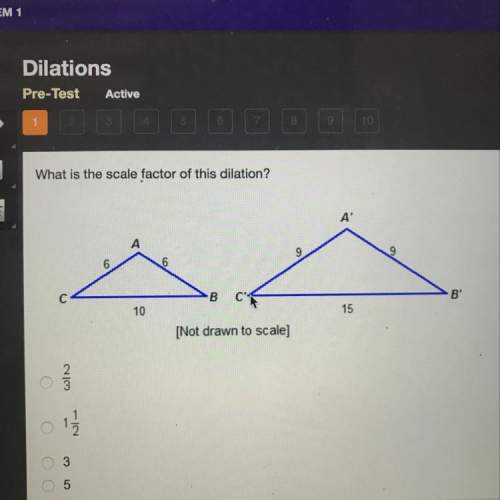
Mathematics, 14.07.2019 13:50, hdhdhd49jdhd
Find the intervals of convergence for the function. f(x)=sum_(n=1)^infinity x**n/n**2 32324243232 incorrect: your answer is incorrect. (b) find the intervals of convergence for f '.

Answers: 1
Other questions on the subject: Mathematics

Mathematics, 21.06.2019 20:00, stichgotrich7159
Michael is training for a marathon. in his first week he plans to run 8miles. what path should he take
Answers: 1

Mathematics, 21.06.2019 23:50, ranchgirljls
Find the interior angle of a regular polygon which has 6 sides
Answers: 1

Mathematics, 22.06.2019 01:10, hellicuh
Evaluate 8x2 + 9x − 1 2x3 + 3x2 − 2x dx. solution since the degree of the numerator is less than the degree of the denominator, we don't need to divide. we factor the denominator as 2x3 + 3x2 − 2x = x(2x2 + 3x − 2) = x(2x − 1)(x + 2). since the denominator has three distinct linear factors, the partial fraction decomposition of the integrand has the form† 8x2 + 9x − 1 x(2x − 1)(x + 2) = correct: your answer is correct. to determine the values of a, b, and c, we multiply both sides of this equation by the product of the denominators, x(2x − 1)(x + 2), obtaining 8x2 + 9x − 1 = a correct: your answer is correct. (x + 2) + bx(x + 2) + cx(2x − 1).
Answers: 3

Mathematics, 22.06.2019 02:00, fespinoza019
The null and alternate hypotheses are: h0: μ1 ≤ μ2 h1: μ1 > μ2 a random sample of 22 items from the first population showed a mean of 113 and a standard deviation of 12. a sample of 16 items for the second population showed a mean of 99 and a standard deviation of 6. use the 0.01 significant level. find the degrees of freedom for unequal variance test. (round down your answer to the nearest whole number.) state the decision rule for 0.010 significance level. (round your answer to 3 decimal places.) compute the value of the test statistic. (round your answer to 3 decimal places.) what is your decision regarding the null hypothesis? use the 0.01 significance level.
Answers: 1
Do you know the correct answer?
Find the intervals of convergence for the function. f(x)=sum_(n=1)^infinity x**n/n**2 32324243232 in...
Questions in other subjects:






Mathematics, 18.10.2019 06:10




Computers and Technology, 18.10.2019 06:10





 , but we also know the series will converge at the endpoints.
, but we also know the series will converge at the endpoints.  is a convergent
is a convergent  -series, which means
-series, which means  is also (absolutely) convergent, so in fact the interval of convergence is
is also (absolutely) convergent, so in fact the interval of convergence is  (endpoints included).
(endpoints included).




